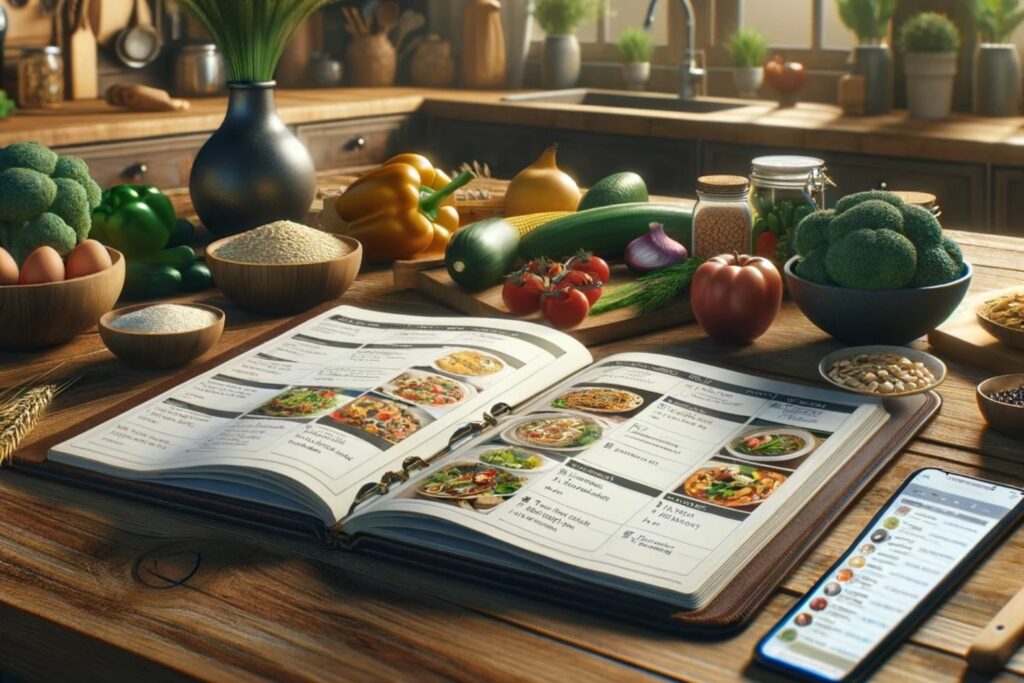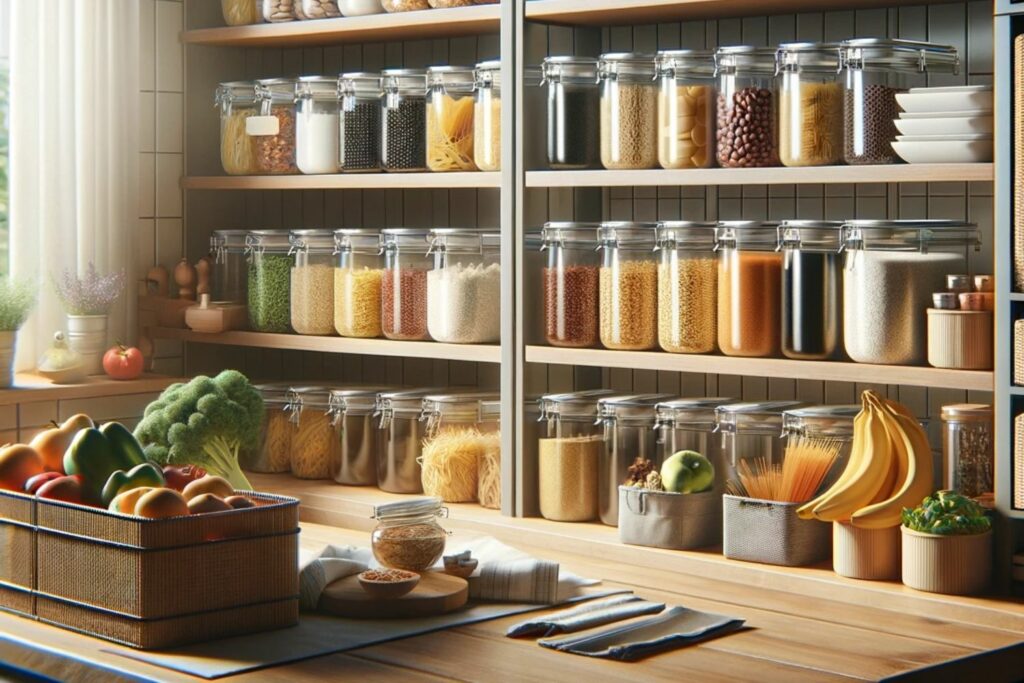In an era where sustainability is more than just a buzzword, reducing food waste at home has become a crucial aspect of our daily lives.
Not only does minimising waste help in conserving resources and saving money, but it also plays a significant role in addressing the global challenge of feeding a growing population.
Let’s explore 13 effective strategies that you can adopt to minimise food waste in your home.
1. Plan Your Meals to Reduce Food Waste

Planning meals in advance is a cornerstone strategy in avoiding food waste.
By knowing exactly what you need for the week’s meals, you can avoid buying excess food that might end up unused.
A well-thought-out meal plan considers both the quantity and the perishability of the items.
Check out our delicious recipes to get some inspiration for your weekly planning.
2. Shop Smart
Make a habit of shopping with a list.
Stick to buying what’s on the list to avoid impulse purchases, which often lead to surplus food.
Avoid shopping when you are hungry or at the weekend when the shops are busy. This will help you stay focused and lower stress while you shop.
Also, understanding food labels is key to buying items that you can use before they go bad.
3. Understand Expiry Dates
Educate yourself and your family about the difference between ‘use-by’, ‘sell-by’, and ‘best before’ dates.
Often, food is still safe to eat after the ‘best before’ date, which is more about quality than safety.
4. Understanding Food Storage

Proper storage of food can significantly extend its life.
Learn the best ways to store different types of food.
For instance, certain fruits emit natural gases that can hasten the spoilage of nearby produce.
One example is everyone’s favourite banana. These should not be kept in the fridge as it can cause them to ripen quicker and they should not be kept with other fruits as they can speed up the ripening of the fruits around it.
5. Serve Smaller Portions
To reduce waste, start by serving smaller portions.
This approach not only minimises waste but also encourages healthier eating habits.
Leftovers can always be stored for later consumption.
6. Love Your Leftovers
Get creative with leftovers.
Many meals can be repurposed into something new and exciting, reducing the likelihood of getting thrown out.
For example, turn last night’s roasted chicken into a savoury chicken salad for lunch.
7. Preserve and Can

Learning the art of canning and preserving food is a fantastic way to extend the life of surplus fruits and vegetables.
Homemade jams, pickles, and canned vegetables can be a delightful way to enjoy seasonal produce year-round.
Who doesn’t love having mango pickle on hand, ready for when you have a few extra poppadoms lying around.
8. Compost Food Scraps
Instead of throwing away food scraps, start a compost bin.
Composting not only reduces the amount of waste sent to landfills but also provides you with rich soil for gardening.
Perfect for…
9. Growing Your Own Herbs, Fruits and Vegetables

Growing your own vegetables and herbs reduces the need for packaged produce and allows you to use exactly what you need, thereby reducing waste.
It also brings the added joy of connecting with your food source. Why not try growing your own tomatoes and make it into a family activity with the kids.
10. Use a Shopping App
Technology can aid in reducing food waste.
Use apps that help track your pantry inventory and suggest recipes based on what you have, ensuring that food gets used before it spoils.
Sorted Food’s Sidekick app is a great option to get control of your shopping.
11. Donate Excess Food
If you find yourself with more food than you can consume, consider donating to local food banks or shelters.
This not only helps in reducing waste but also supports those in need.
12. Educate Your Family
Involving your family in understanding the importance of reducing food waste is crucial.
Educate them about the environmental and economic impacts and encourage them to adopt these practices.
Teaching children at a young age about sustainable cooking will help them to grow up with a sustainable mindset leading to eco-friendly habits.
13. Conduct a Waste Audit
Regularly check what’s getting thrown away in your home.
A waste audit can be an eye-opener and help in identifying patterns or specific types of food that often go to waste.
By planning your meals ahead of time, you should minimise the amount of food you throw away, but it is always a good idea to keep track of what you are throwing away to help reduce your waste in the future.
Reduce Food Waste with My Kitchen Spices
Reducing food waste at home is a journey that requires commitment and creativity.
By incorporating these 13 strategies, families can make a significant difference in their waste footprint.
Remember, every small step counts in the collective effort to reduce food waste and preserve our planet’s resources.
If you want to find out more about time saving kitchen hacks take a look at our other blog.


